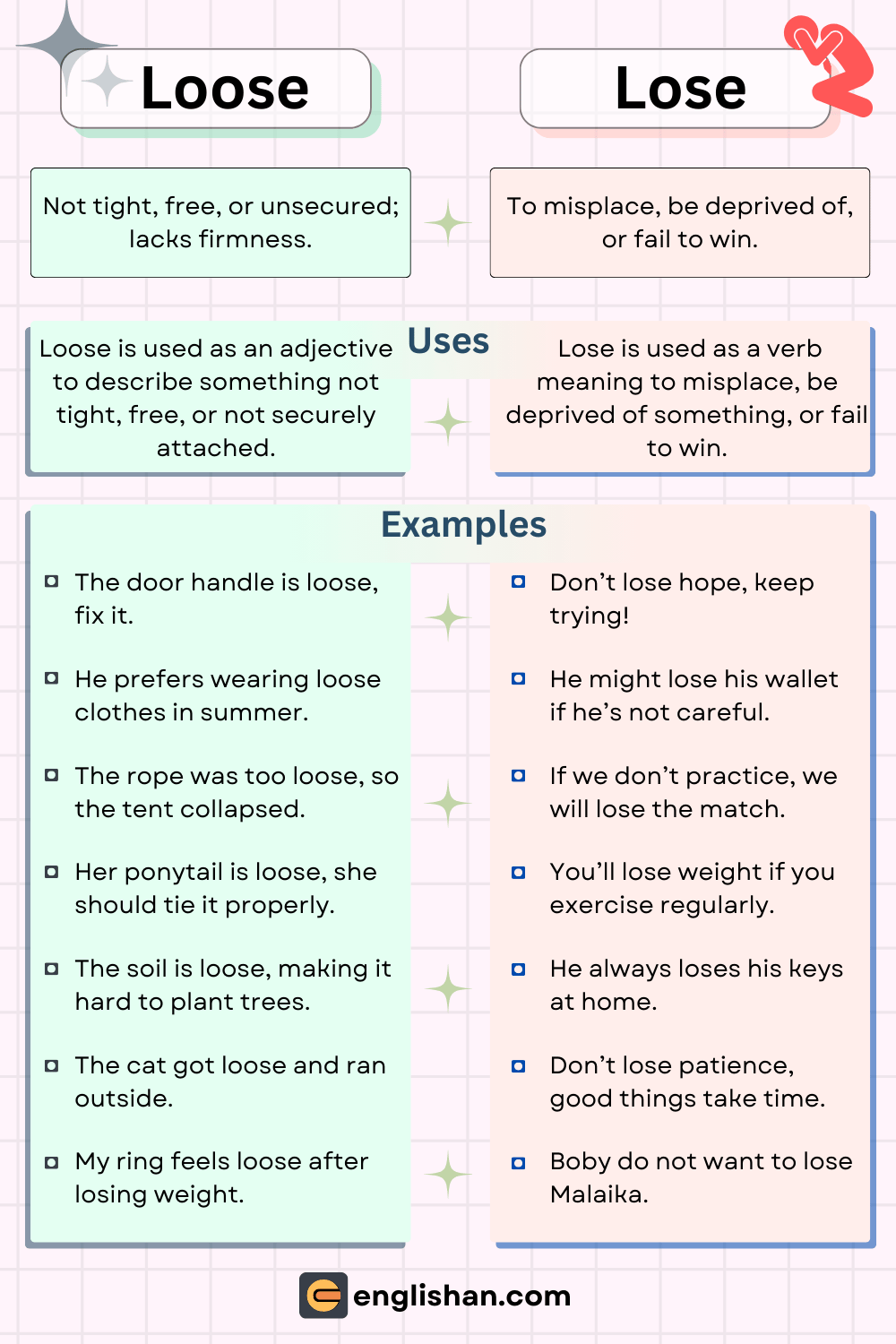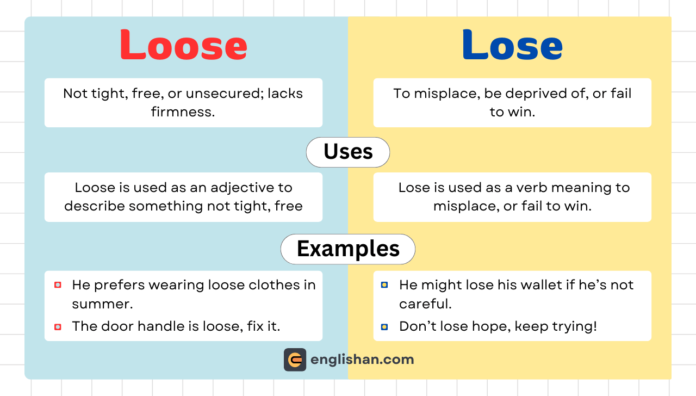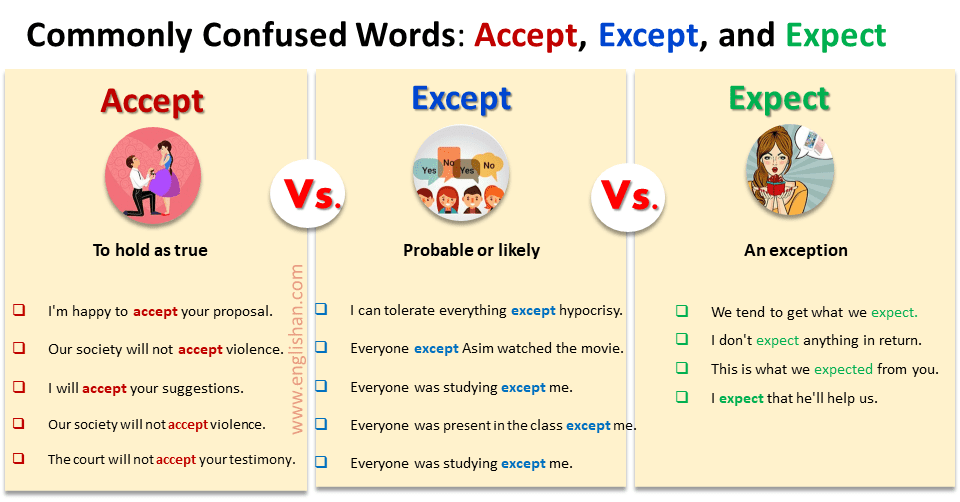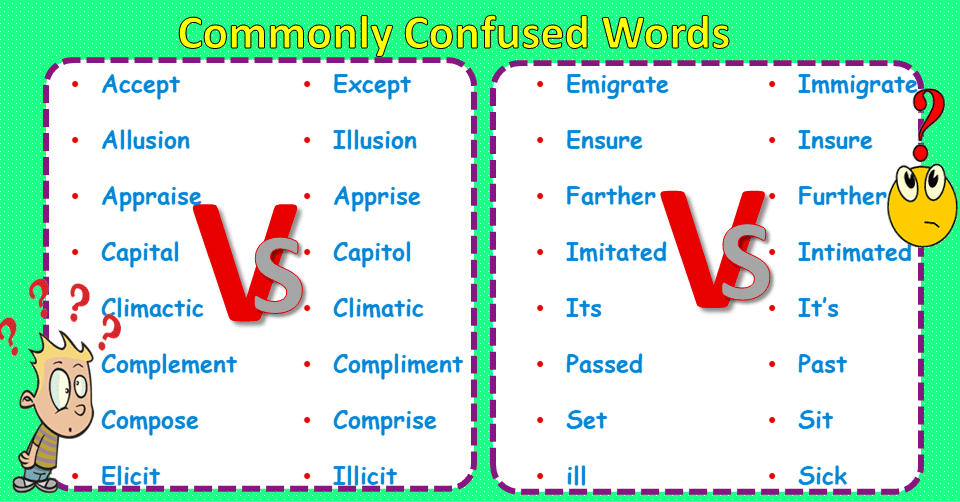Contents
Understanding the difference between loose and lose is essential for English learners, as these words are often confused due to their similar spelling and pronunciation. Knowing the correct usage of these commonly confused words will enhance your writing and speaking skills. In the discussion of Loose vs Lose, to improve your English further, visit our Confused Words category and learn more about tricky word pairs.
Meanings of Loose and Lose
Loose
- Meaning: Refers to something that is not tight, free, or not securely attached. It describes objects or situations where there is a lack of firmness or control.
Lose
- Meaning: Refers to the act of misplacing, failing to win, or being deprived of something. It indicates a loss in possession, position, or opportunity.

Pronunciation of Loose and Lose
- Loose: Pronounced as /luːs/ with an “s” sound at the end.
- Lose: Pronounced as /luːz/ with a “z” sound at the end.
Differences Between Loose and Lose
| Aspect | Loose | Lose |
|---|---|---|
| Part of Speech | Adjective | Verb |
| Meaning | Not tight, free, or unattached | To misplace, fail to win, or be deprived |
| Pronunciation | /luːs/ (with “s” sound) | /luːz/ (with “z” sound) |
| Common Usage | Describing the state of objects | Describing actions or experiences |
| Verb Usage | Rarely used as a verb | Always used as a verb |
Usage of Loose
1. Describing Something Not Tight or Secure:
Refers to objects that are not tightly fixed or secure.
- Amina’s scarf was loose and fluttered in the wind.
- The door handle feels loose; it might fall off soon.
In these sentences, “loose” is used as an adjective describing the state of the scarf and the door handle.
2. Referring to Freedom or Flexibility:
Indicates something not confined or restricted.
- The horse broke loose from the stable.
- He prefers wearing loose clothing for comfort.
Here, “loose” describes both the state of freedom and the relaxed fit of clothing.
Usage of Lose
1. To Misplace Something:
Refers to not being able to find something.
- Fatima didn’t want to lose her phone at the market.
- Bilal tends to lose his keys frequently.
Both sentences show “lose” as a verb, indicating misplacement.
2. To Fail in a Competition or Game:
Describes not winning or being defeated.
- Our team didn’t want to lose the final match.
- Zain felt sad to lose the chess tournament.
Here, “lose” refers to the act of failing to win.
3. To Be Deprived of Something:
Indicates the loss of intangible things like time, opportunity, or a person.
- She didn’t want to lose her chance at the scholarship.
- They were heartbroken to lose a beloved friend.
In these examples, “lose” signifies emotional or opportunity-related loss.
Formal and Informal Uses of Loose and Lose
- Loose is commonly used in both formal and informal contexts when describing physical objects, freedom, or flexibility.
- Lose is frequently found in formal writing, especially in academic and business contexts, to describe loss of data, opportunities, or competitions.
FAQs
Loose is an adjective meaning not tight, while lose is a verb meaning to misplace or fail to win.
Think of “loose” having an extra “o” because it’s open or free, while “lose” is shorter because something is missing.
Summary
Loose describes objects that are not tight, free, or unattached, while lose means to misplace something, fail in an attempt, or be deprived of something valuable. Recognizing this difference helps in using these words correctly.
You May Also Like






